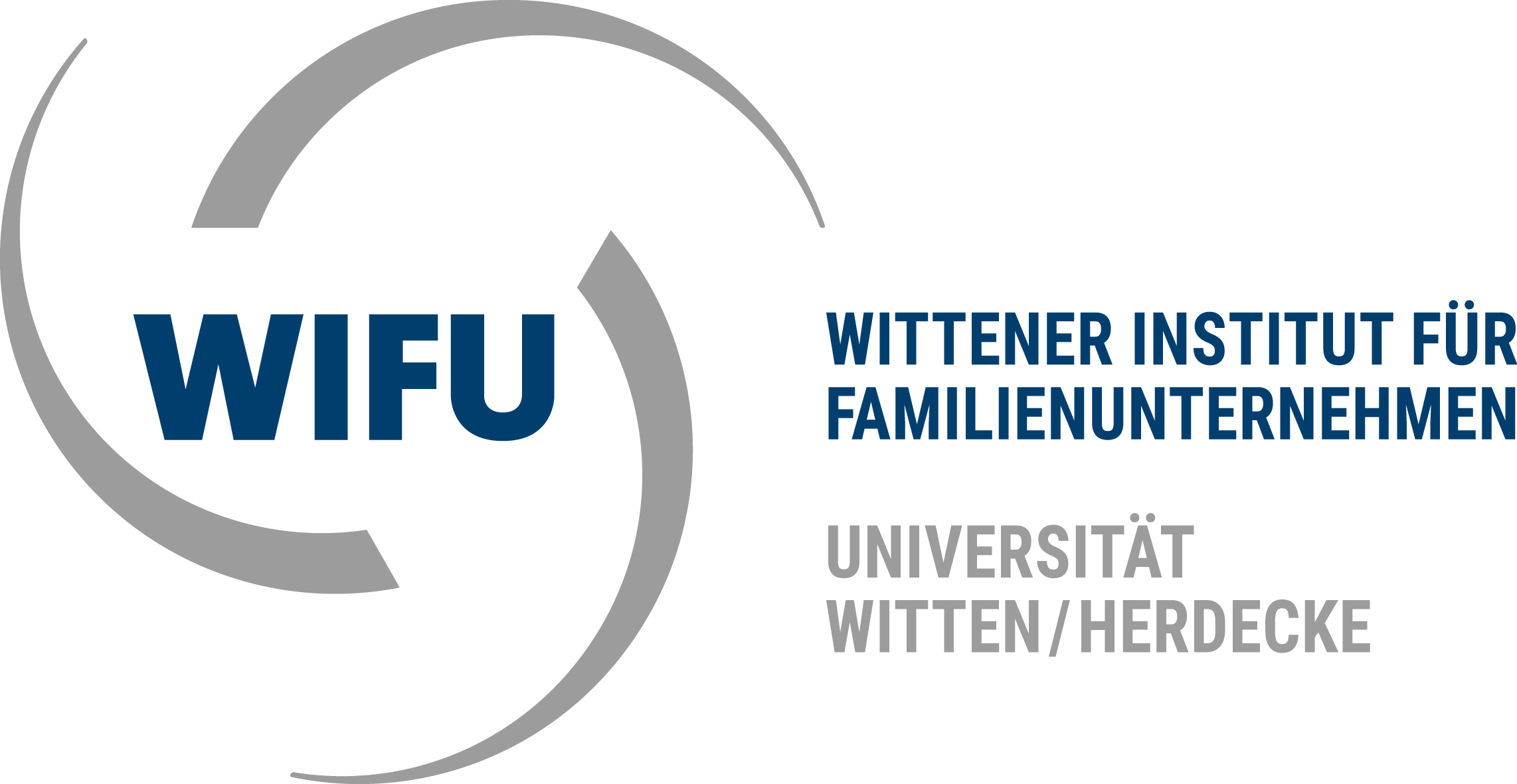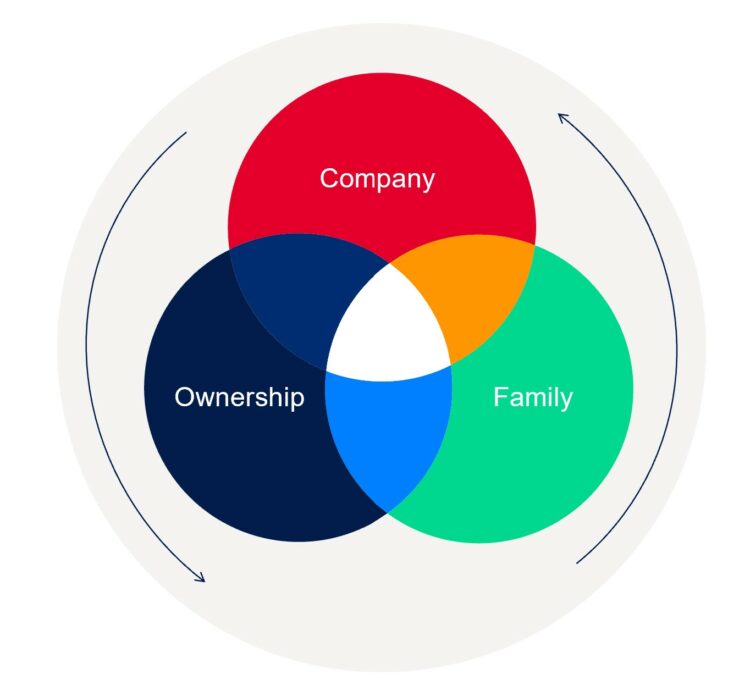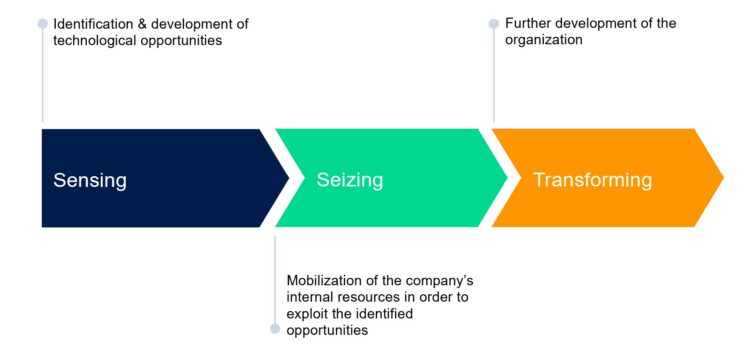
Digitization in family-run businesses: achieving a harmony between values and change
90% of all companies in Germany are family-owned. This has been confirmed by the Foundation for Family Businesses, which has demonstrated in its surveys that medium-sized family businesses produce approximately 52% of all commercial yields in Germany. Family-owned SMES are therefore an important actor and, like many other companies, are facing up to the challenges posed by the digital transformation. The “family factor” incurs other underlying conditions for family businesses that do not apply to non-family-owned businesses. Our colleague Maren Bendel has investigated the impact of these conditions and why the digital transformation is a particular challenge for family businesses as part of a research project at the Wittener Institute for Family Businesses (WIFU).
Maren, you advise family-owned businesses in your role as a Business & Strategy Consultant at Comma Soft – which is itself a family business. You have also conducted research on “Digitization in Family Businesses” as part of a project at WIFU and are now studying for a doctorate in this subject. Where does your enthusiasm for family businesses come from?
There is one complex problem that entrepreneurial families have been dealing with since time immemorial: having to reconcile personal desires with corporate goals. The self-fulfillment achieved through work that more and more people strive for today has always been part of the core business of entrepreneurial families. At the same time, the work culture in these companies is often different than in non-family-run businesses, in that there is often a discernible family-like atmosphere that a lot of employees appreciate. Working in a company in which the management, owners and employees all interact on an equal footing and work as a close team in order to achieve the company’s objectives is something I have always been curious about. For one thing, I wanted to experience for myself whether working in a family business lived up to my expectations: is there this fulfilling, autonomous approach to work combined with an appreciative, caring atmosphere? This is certainly the case at Comma Soft, which is something I am very glad about. Something else I wanted to do in parallel with my work as a consultant was examine further the research question of whether precisely this sort of family character can survive in the modern digital era. What are the decisive factors in whether family businesses in particular can achieve a higher degree of digitization? Are there unique characteristics that shape their digital transformation? These are the questions that I investigated in depth in my research study, the results of which I am now enlarging upon in my doctorate, which is focused on the specific aspect of digitization that is cybersecurity.
About the research project “Digitization in Family Businesses”

- Research project in collaboration with University of Witten/Herdecke University of Trier
- Sponsored by the WIFU Foundation for Family Business
- Guiding question: How can family businesses push on with their digital transformation?
- Subtopics: digitization measures, strategic digitization & corporate objectives, resource allocation
- Number of survey respondents: > 500 SMEs in Germany
- Authors: Prof. Dr. Thomas Clauß, Prof. Dr. Jörn Block, Dr. Matthias Johann, Solvej Lorenzen & Maren Bendel
What are some of the characteristics that are unique to family businesses?
In the course of my research work I initially came across 100 different definitions for the term “family business”. Most of them are based on the three-circle model developed by Tagiuri and Davis. According to this model, a family business has three dimensions: the company, the family and the ownership. The overlap of these circles is what gives the family business its unique character: the family and its principles are the fulcrum and linchpin of strategic decisions. The triad of “family”, “ownership” and “company” and the interaction of these elements is particularly evident in the form of specific socio-emotional values that have an impact on strategic and operative decision-making.

What exactly are these family values and what impact do they have in a corporate context?
For one thing, you tend to find extremely pronounced loyalty and a unique manner of striving for excellence: family business owners often identify strongly with the company, particularly when either they or their forefathers founded the company – in some cases the company name and the family name are identical. Success takes on a different kind of significance against this backdrop, given that the success of the business is often equated with personal success. Added to that are close social ties with employees and external partners or institutions. Lastly, emotional arguments carry a lot of weight in decision-making – the famous gut feeling, for instance, but also endurance in relation to passing on strategic perspectives across generations.
People often feel a sense of ambivalence about this aspect. This can be seen quite clearly in innovation behavior, for example: on the one hand, the aforementioned values create the ideal conditions for innovation – a close-knit community that fuels knowledge sharing. This always has a visible effect when optimizing the company’s core portfolio. You could even say that this is the ultimate discipline of family businesses. On the other hand, family values often act as a counterbalance when disruptive, transformative innovations need to be implemented. The tried and tested meets the new, and with it perceived security meets perceived insecurity. This generates tension.
In-depth transformation in particular requires critical reflection about the corporate DNA, such as the business model. However, breaking up long-standing structures and traditions on one’s own is often difficult and, in many cases, almost impossible due to the overlap between systems. After all, this is not only about making a change within a company, but also invariably about one’s own family and one’s own identity. Adaptability is, however, a necessary factor in the resilience of a company in order to ensure its continued existence as a viable business. People even refer to this as an “innovation dilemma”, which arises from the discrepancy between the existing ability to implement innovations and the emotional willingness to do so.
Were you able to demonstrate this kind of ambivalence in family businesses in your study?
I asked family businesses about which dynamic capabilities they use and to what extent they do so. There are three essential sets of skills: sensing, seizing and transforming. This refers to how technological opportunities are identified and actioned, and how the organization is developed as a result. These three skills form a sequential process through which innovative ideas can be anchored in an established company. This is the very thing that is crucial when it comes to introducing digital technologies and makes a significant contribution to achieving a higher level of digitization in family businesses. The results of the survey indicate that the more of these capabilities are available or the more pronounced they are, the more likely it is that processes are automated and the greater the degree of digitalization of the strategically selected products and services and the value capture in the business model.
However, the findings of the study also show that the socio-emotional values of family businesses provide a counterbalance to their dynamic capabilities. A high degree of identification with the company, close social and emotional ties, the desire to keep the company in family hands: all of these can reduce the positive effect of dynamic capabilities.

How can family businesses address this ambivalence?
Dynamic skills can be strengthened in a targeted manner. In concrete terms, this can take the form of firmly establishing introspective reflection within the company. Analyzing the business environment, deriving digital initiatives, implementing them and reflecting critically on changes should all be part and parcel of entrepreneurial practice. As a first step, this can be done through targeted knowledge generation, for example, through open innovation processes with various stakeholders. Employees’ knowledge of internal structures and the potential for optimizing them plays a key role here and can be enabled, for example, through ideas competitions. Innovative processes, new product ideas or new business methodologies should then be systematically documented. The establishment and expansion of an in-house innovation area and investing in R&D can also broaden the entrepreneurial search horizon.
The second step is then to implement process and product innovations. In addition to in-house initiatives, many family businesses also rely on collaborations with strategic value-added partners for innovation projects. Firstly, because this is often necessary in terms of the resources available. Secondly, it enables them to acquire even more market knowledge, identify trends at an early stage and test new digital opportunities through joint pilot projects.
The third step focuses on the integration of new competencies. This includes, for example, digital skills and technological expertise, but also encouraging creativity, for instance through design thinking. Furthermore, companies should also consider how they can continue to drive innovation in the face of “disruptions” in day-to-day business and manage projects flexibly, such as through agile project management. Regular workshops and additional training, as well as continuous support from external consultants, help with all of this.
If dynamic skills are being specifically strengthened, should socio-emotional ones be “trained out” so that they are not an obstacle to transformation?
Business families carry their values within them and everything they do is predicated on them. This cannot simply be trained out, especially if the family business has been around for generations. Nor should it, since this is what gives family businesses their distinctive character and can provide a solid foundation for innovation and digital transformation. Rather, it is about creating a healthy balance between innovative dynamics and established values.
Members of business families serve as role models in this regard. They can actively support the digitization process and bring it into line with values by constantly reflecting critically on their own attitude and non-economic objectives, being aware of their symbolic function in the company and proactively driving the strategic digital transformation. Scrutinizing yourself, especially when you can look back on many successful years, is not an easy task. This makes it all the more important to have supplementary perspectives that examine the company as a whole, its goals and potential digitization projects, and support the project: strategic consultation can be a solution for opening up new perspectives, for discovering visions for the future and ways to get there, and finally for making them a reality.
If you would like to discuss this topic further with Maren Bendel and her colleagues, please do not hesitate to contact us: You can get in touch with us here.